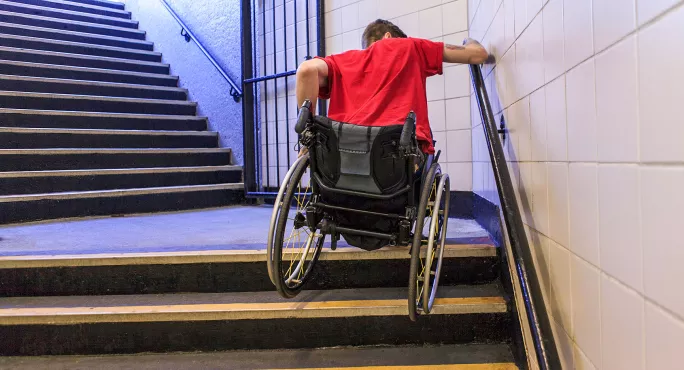MSPs reject plans to improve disabled students’ post-school experience

A Scottish Parliament committee - after hearing that life after school can be “terrifying” for disabled young people - has refused to back legislative proposals to support disabled students in their transition to adulthood, citing lack of teacher capacity as a key consideration.
The Disabled Children and Young People (Transition to Adulthood) Bill, introduced by Scottish Labour’s Pam Duncan-Glancy, would require a government minister to be held responsible for improving the opportunities of young people with disabilities.
It would also require local authorities to have plans in place for each disabled child as they move through to adulthood.
However, in a report published today, members of the Scottish Parliament’s Education, Children and Young People Committee - while saying they were “extremely concerned” by the evidence they heard about disabled young people’s poor experiences of transitions - added that they were “not convinced that the general principles [of the bill] should be agreed”.
The committee said that “doing nothing is not an option” and that “the Scottish government must address the issues of deep concern to the committee as a matter of urgency”.
It intends to monitor the government’s forthcoming National Transitions to Adulthood Strategy “to ensure the published strategy will address concerns raised during scrutiny of this bill”.
- Background: Life after school ‘terrifying’ for pupils with ASN
- Interview: Labour’s Pam Duncan-Glancy
- News: Special needs plan launched but no new money announced
- Related: ASN pupils face ‘unacceptable’ variations in support
Committee convener Sue Webber said: “We want to see the support available for disabled children and young people’s transitions to adulthood improve and commend the member for her work in bringing forward this legislation.
“The bill has shone a light on the challenges faced by disabled young people and their families.
“However, the views we heard during our inquiry were clear. The bill is unlikely to resolve the substantial issues that families with disabled young people are facing. The Scottish government must urgently act to fix these issues.”
Concern over adding to teacher workload
One of the issues with the bill, set out in the report, is whether teachers have the capacity “to manage much of the initial planning process as part of their existing responsibilities, as it is envisioned by the bill”.
The report said that the committee heard “teachers were already struggling with workloads and would be unable to do this without additional resource”. There was also a question of “how appropriate it would be for a teacher to take on this role” for young people with “more complex needs and transitions spanning health, social care, education, housing, third-sector funding and a number of different agencies”.
The MSPs questioned some of the terminology used in the bill, saying it referred to disability - as opposed to additional support needs - and it therefore was not clear “who exactly would be covered by the bill and how they would be identified”.
They also said that the bill referred to the need for disability to be diagnosed and that this could “present an additional barrier to receiving support for a number of young people at a crucial stage in their lives”.
The report adds: “Without clarity on who exactly would be entitled to a transitions plan under the Bill it is not possible to accurately estimate the cost and resource implications associated with implementing the Bill.”
Disabled school leavers left ‘high and dry’
However, Ms Duncan-Glancy said that the committee’s failure to back the bill would mean no improvement for disabled school leavers, even though they say leaving school is like “falling off a cliff”. She said they had been left “high and dry”.
Ms Duncan-Glancy said the Scottish government had done “everything possible to play down” the impact of the bill and “push up” the impact it would have on teachers and how much it would cost.
But she said that the teaching unions were “on the side of doing more” - they just needed the government to give them the resources to do it, including delivering on its promise to increase teacher non-class contact time.
She added: “I would say to disabled children and young people and their families, this is not the end. I won’t give up the fight because I want them to have a fighting chance at a future and there’s no way I will close the door on that.”
Ms Duncan-Glancy said she had no intention of dropping the bill and the next stage would be a vote in the parliamentary chamber
You need a Tes subscription to read this article
Subscribe now to read this article and get other subscriber-only content:
- Unlimited access to all Tes magazine content
- Exclusive subscriber-only stories
- Award-winning email newsletters
Already a subscriber? Log in
You need a subscription to read this article
Subscribe now to read this article and get other subscriber-only content, including:
- Unlimited access to all Tes magazine content
- Exclusive subscriber-only stories
- Award-winning email newsletters



